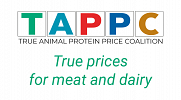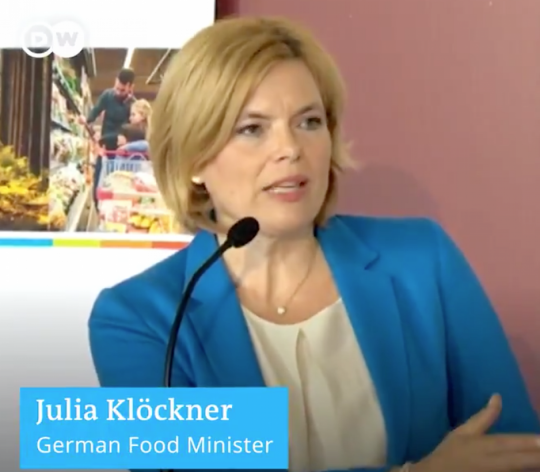German CDU Agriculture Minister Julia Klockner proposes a tax on meat
Friday 26th of June, the German Agriculture Minister proposed a tax of 40 eurocent per kg meat for animal welfare improvements and higher salaries in the meat chain (slaugherhouses, farmers). 2nd of March 2021 the final report for a meat tax was published; a higher VAT on meat products was proposed: https://www.faz.net/aktuell/wirtschaft/klima-energie-und-umwelt/steuer-auf-fleisch-und-milch-die-tierwohlabgabe-kann-kommen-17223545.html
Also because of the coronavirus in German meat plants, the Food minister called for 'readjustment'.
A spotlight is on the German meat industry following allegations of poor animal welfare and working conditions amid coronavirus outbreaks at meat plants. Food Minister Julia Klöckner has called for less "cheap meat."
German Food and Agriculture Minister Julia Klöckner invited meat industry officials to discuss the future of livestock farming on Friday. The meeting comes after several coronavirus outbreaks at meat-processing plants in Germany have led to increased scrutiny on conditions for workers and animals in the industry.
At a press conference following the talks, Klöckner spoke of sometimes "emotional" discussions about the way meat is often sold at "dumping prices" in Germany.
Klöckner stressed that excessively low prices for meat did not reflect its true value and the fact that an animal had been reared and lived especially to produce it. Although meat should not become a luxury for the rich, she said, it must not be too cheap.
She once more stated that Germany was intending to introduce an animal welfare levy that would be added to the price of meat.
In addition, she said, representatives at the talks had agreed that authorities should look at the ethical background to cheap food in general and at unfair trade practices in the meat industry.
Another aspect discussed at the talks was the introduction of a quality seal to help consumers decide what meat products they are happy with buying.
Industry representatives from abattoirs, meat-processing plants, the farming sector, animal rights groups as well as veterinarians were invited to attend the talks in Dusseldorf, along with the agriculture ministers of the states of North Rhine-Westphalia (NRW) and Lower Saxony, where many of the affected plants are based.
Sources:
Video with Julia Klockner:


